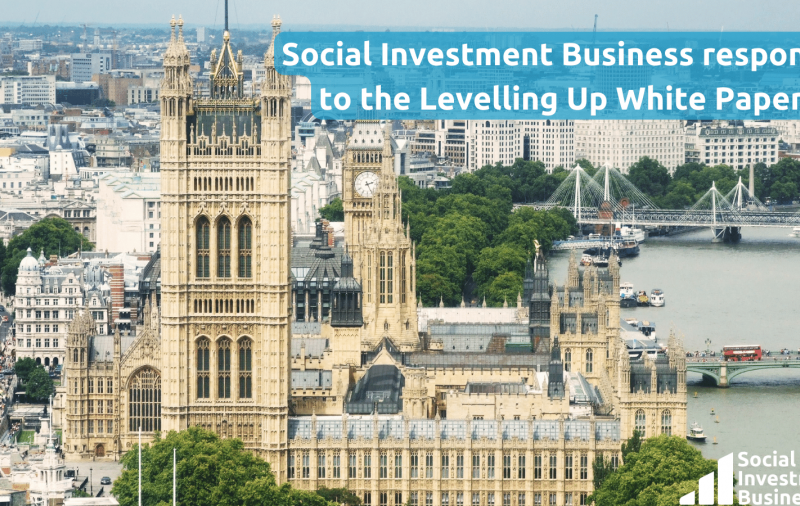The Levelling Up White Paper has an impressive and detailed diagnosis of the UK’s geographic disparities. It makes a strong argument for systemic reform that would enhance Government decision-making with better data, empower local leadership through devolution, and extend policy time horizons with a mission-oriented approach that spans a decade (as opposed to a single electoral cycle). We are pleased to see an emphasis on building social capital and social infrastructure as a central part of this agenda – and there also appears to be meaningful engagement with measures of wellbeing beyond pure economic metrics.
03 February 2022
Our Response to the Levelling Up White Paper
We are supportive of this approach. If the government is really committing to using data better, then it needs to draw on existing sources and insights – particularly those which help understand how the pandemic has affected places in different ways. Achieving these ambitious goals will not only require more detailed plans with adequate resources attached, but smarter and more effective use of data to target those areas (and areas within areas) where the most impact can happen. It will also require creative thinking, including a greater integration between public, private and social sector spending – but most importantly – delivery.
The White Paper is let down somewhat by its policy programme, which currently lacks the level of ambition and resourcing necessary to tackle these structural challenges and deliver the necessary reforms. That said, there are three areas where we see some real potential for positive progress.
- Leveraging local authority pension schemes for local projects: We are pleased to see that the Impact Investing Institute’s recommendations have been picked up by the Government. This proposal was very much wrapped up in catalysing private sector investment in local projects, which doesn’t necessarily mean more money for the social economy. However, this is still something we very much support. We think there is a strong case for making institutional investment available to social investors, as well as potential for it to be crowded into longer-term investment in local social infrastructure. The combination of impact, institutional and social investment could really catalyse change in the communities that need levelling up the most.
- Embedding social value in commissioning and procurement: contracting authorities will now be required to consider national and local priorities, including creating new jobs and skills, encouraging supply chain innovation and supporting strong, integrated communities. Although these social value reforms have been in the mix for some time, they will be put into law in the forthcoming Transforming Procurement Bill and will make it easier for social enterprises across the country to bid for and win public contracts. Through our work on Futurebuilders, we know that patient and flexible social investment can effectively develop contracting capability in the social sector. It also builds organisational resilience and creates employment in some of the most disadvantaged areas of the country. There is now a strong case for a Futurebuilders 2.0 fund or funds to support this aspect of the wider levelling up agenda.
- Regeneration and community investment: although the majority of the regeneration funds have already been announced and there is a predominant focus on capital investment, the UK Shared Prosperity Fund will have funding available for both capital and revenue projects. There is a proposal for tackling longstanding vacant units on the high street, and the Government will also explore a variety of options for expanding community ownership of assets. We are supportive of this kind place-based investment – better still if it strengthens community ownership of local high street infrastructure – but it is also necessary to think about what will occupy these spaces and buildings. If Local Authorities are given powers to fill vacant shops, then what should they fill it with? For us, it should be an opportunity to develop the social economy that can provide good jobs, accessible services and strengthen local supply chains.
We agree with the Government that levelling up is a ‘collective endeavour’ – it will not be the work of a single parliament, but a coordinated effort across the public, private and social sectors to rebuild communities, improve living standards and create a more equitable, inclusive and green economic system. We look forward to working with all layers of government, the private sector, our social sector partners – and most importantly those who live in these communities – to make change happen.
For media enquiries contact:
Anissa Morris, Marketing and Social Media Officer
Email : anissa.morris@sibgroup.org.uk




